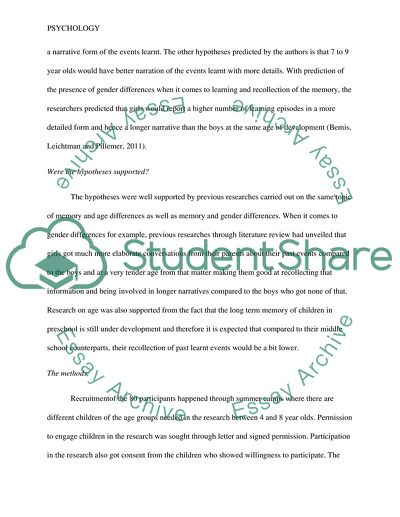Childrens Memories Coursework Example | Topics and Well Written Essays - 750 words. Retrieved from https://studentshare.org/psychology/1627577-article-summary
Childrens Memories Coursework Example | Topics and Well Written Essays - 750 Words. https://studentshare.org/psychology/1627577-article-summary.


